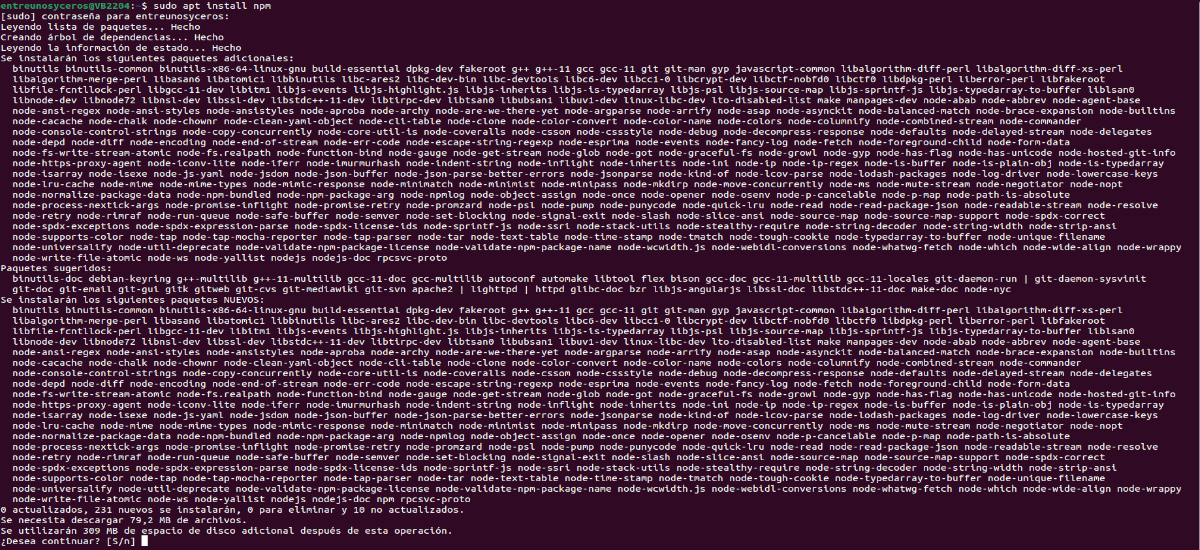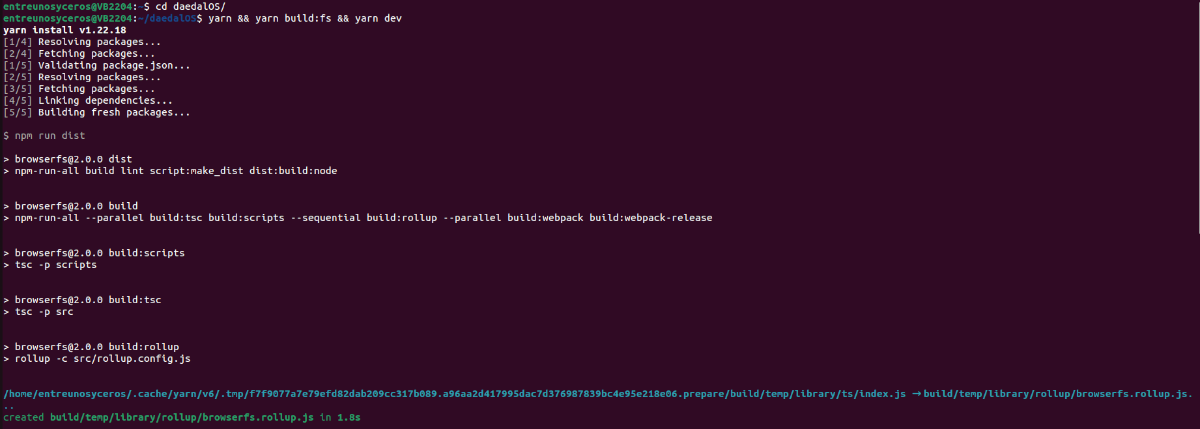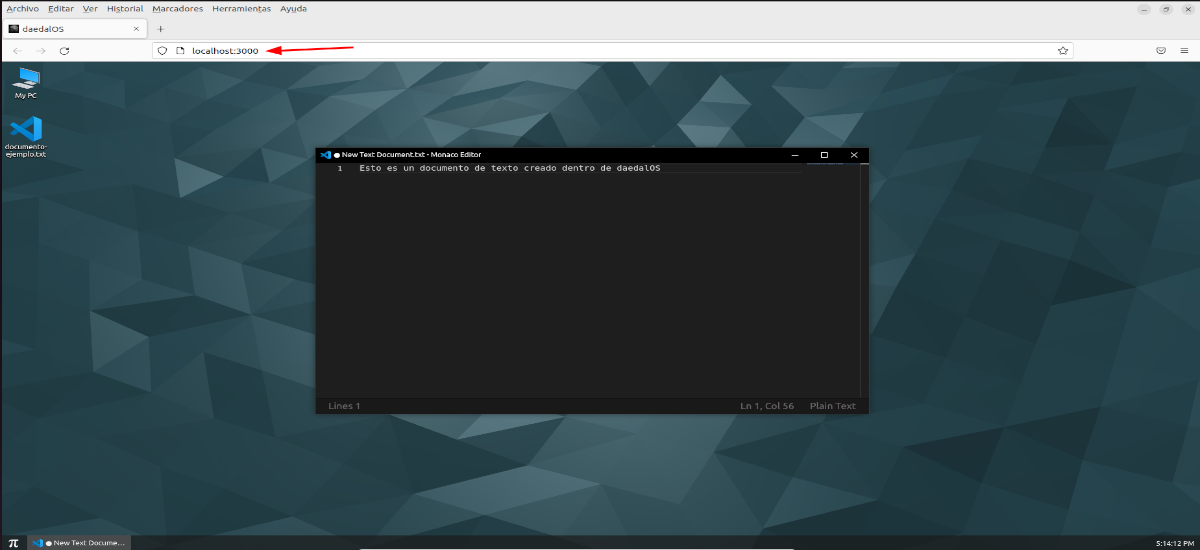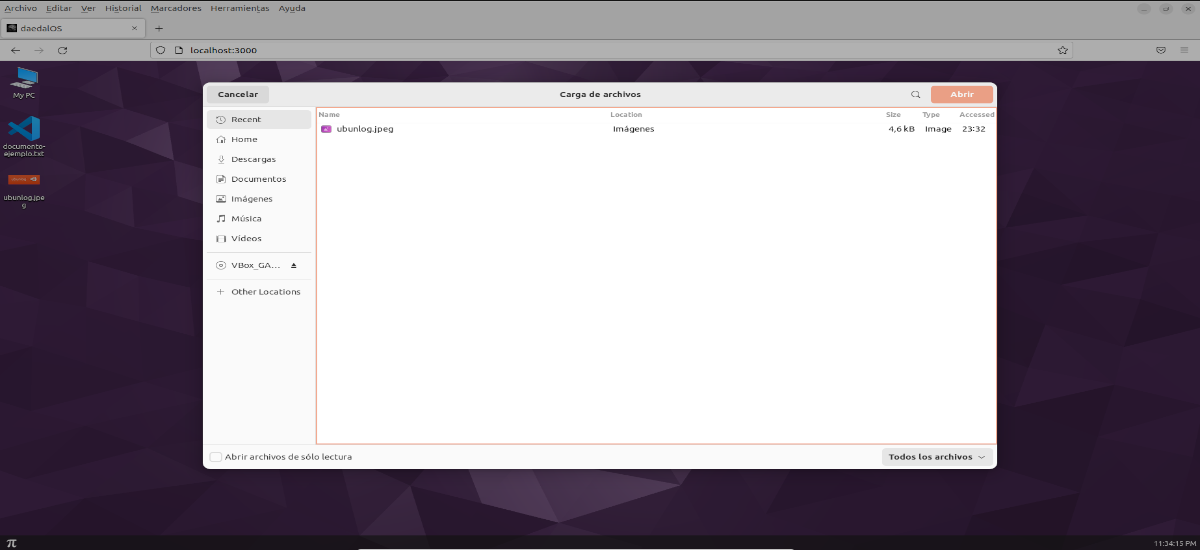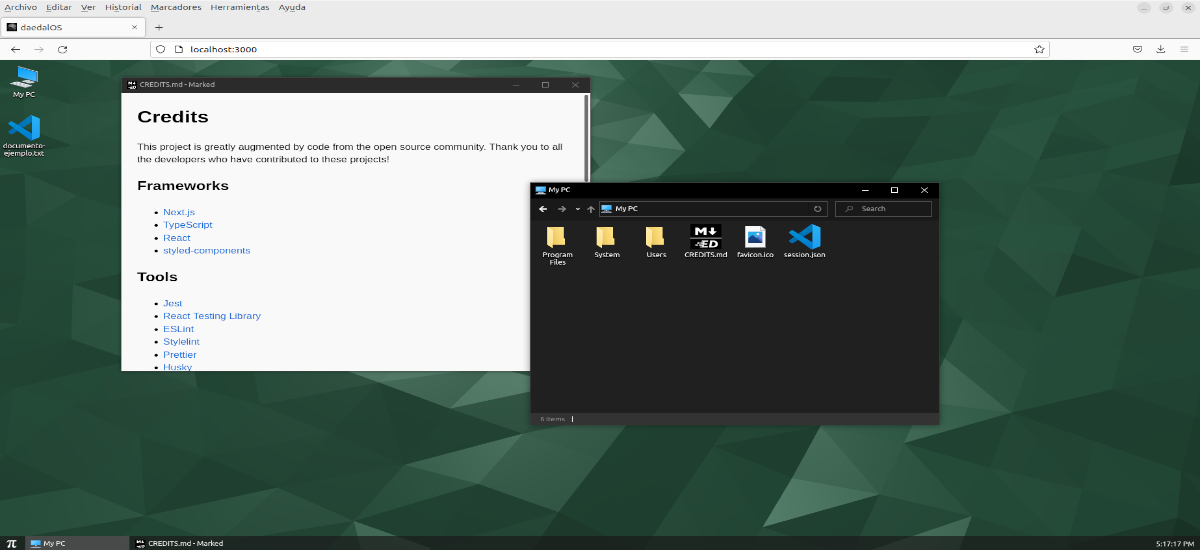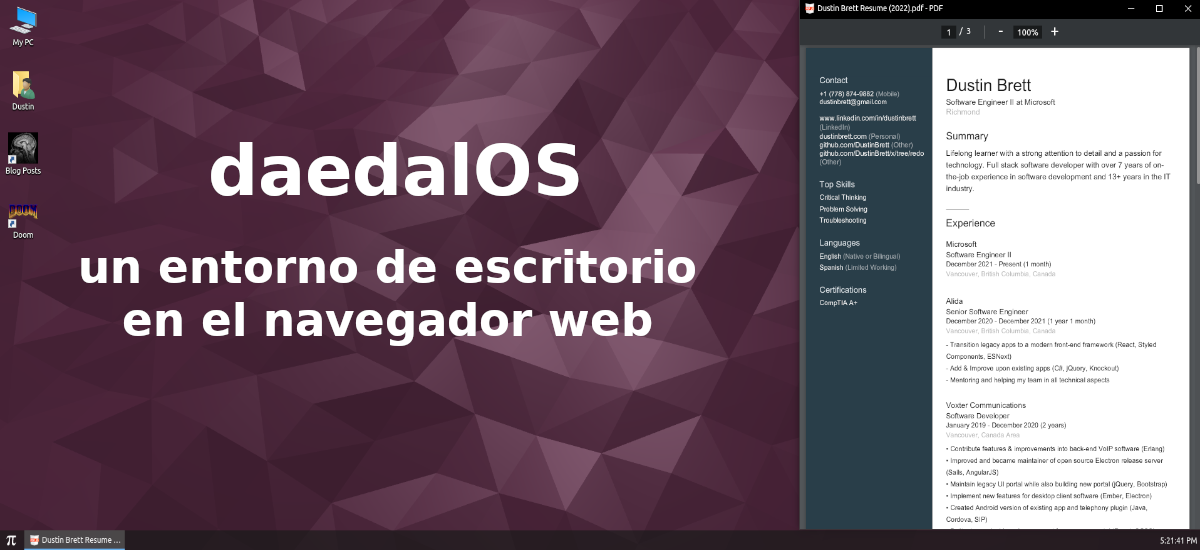
In the next article we are going to take a look at daedalOS. This is a desktop environment that we can use from the web browser. In case someone doesn't know what it is, say that a desktop environment is a collection of disparate components that integrate with each other.
daedalOS is written in JavaScript and TypeScript. It takes a different approach to the traditional desktop environment like GNOME and KDE. The goal of this project is to create a web-based desktop environment, which also seeks to be suitable for daily use, although as we will see later, to achieve this it still has a long way to go.
Install daedalOS on Ubuntu 22.04
This software is going to run using yarn, which is a package manager. For this example, let's use npm to install yarn. Npm is a package manager for JavaScript, which is not pre-installed with Ubuntu. So let's first install npm by opening a terminal (Ctrl+Alt+T) and running the command:
sudo apt install npm
Once the installation is complete, we can proceed and install yarn. To do this, in the same terminal we are going to write:
sudo npm install --global yarn
Clone daedalOS repository
The next step we are going to take is clone the project repository. In a terminal just use the command:
git clone https://github.com/DustinBrett/daedalOS.git
Now, we are going to change to the daedalOS directory:
cd daedalOS
Now we can run our own copy of the daedalOS desktop for the browser with the commands:
yarn && yarn build:fs && yarn dev
The output will include the line different lines. In one of them they will indicate that the server is started at 0.0.0.0:3000, and the url from which to access.
A quick look at daedalOS
Having the service running in the terminal, to access the desktop, we will only need open our favorite web browser and type the URL:
http://localhost:3000
When the desktop loads, if we right-click on the animated background, we will be presented with a menu that It will offer us the option to copy files from the host computer to the browser's desktop, and vice versa. This will allow us to upload files.
Also, also It will allow us to drag and drop files and folders in the daedalOS interface, although I have to say that this function during the tests that I carried out, on some occasions it has failed. But when this happens, the option to add files from daedalOS will work perfectly.
The desk integrates a web browser and a video player (video.js) that supports HTML5 video and modern streaming formats. It also has a photo viewer compatible with APNG, AVIF, GIF, JPEG, PNG, SVG and WebP formats. It also has PDF.js available, a PDF viewer, practical even if somewhat slow.
It also has a developer console (devTools), A code editor (Monaco Publisher), A parser and compiler Markdown (marked), A rich text editor (TinyMCE), A irc client, terminal emulator very simple and a Audioplayer (webamp).
daedalOS too integrates Ruffle to run JavaScript or Virtual x86 applications, an operating system emulator. Furthermore, there are even several emulators, including Wine.
The project developer includes an animated wallpaper, which can be a problem for users on low-resource machines.
While the desktop offers access to a variety of open source programs, still lacking in many aspects. Perhaps the most notable among them is that At the moment it will not allow us to install applications that interest us.
However, if this project is further developed, it might be great to be able to run your desktop environment entirely in a web browser. Besides, performance is not bad either, at least with a machine with reasonable power. Without a doubt, its creator has invested a lot of work in the development of the project. You can know more about this your the GitHub repository, or you can also test daedalOS without installing it by visiting their website.
